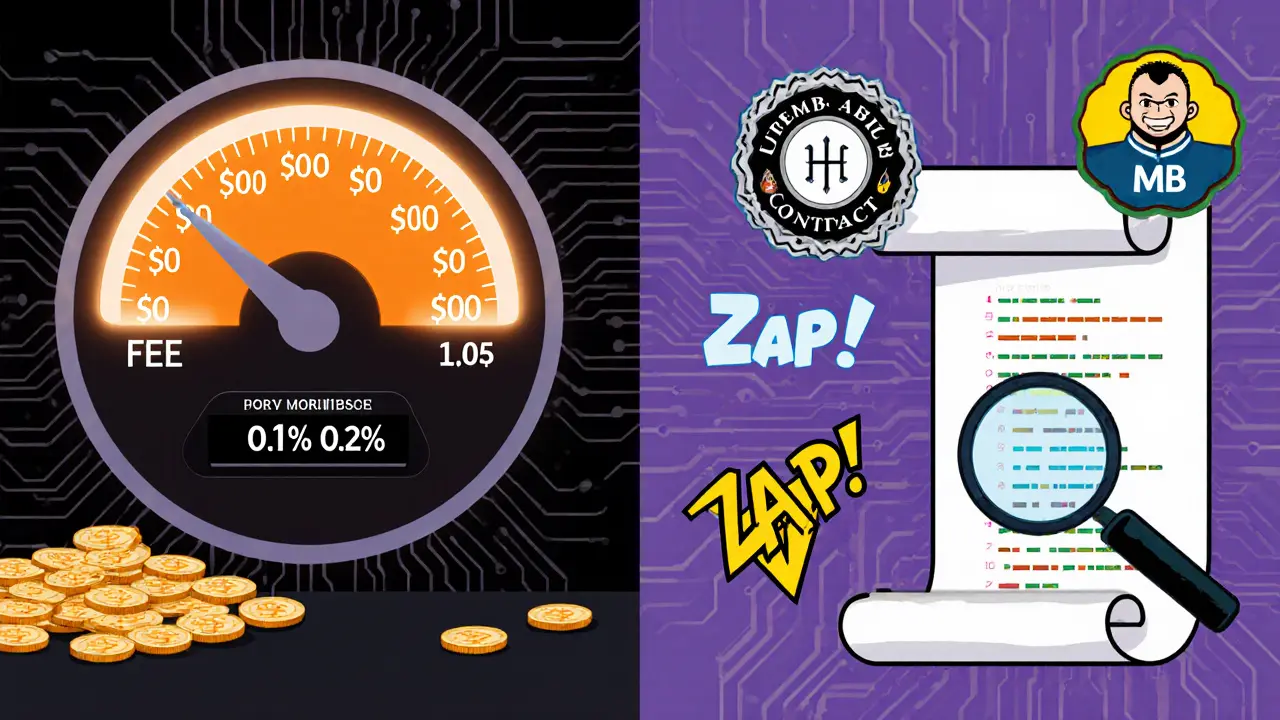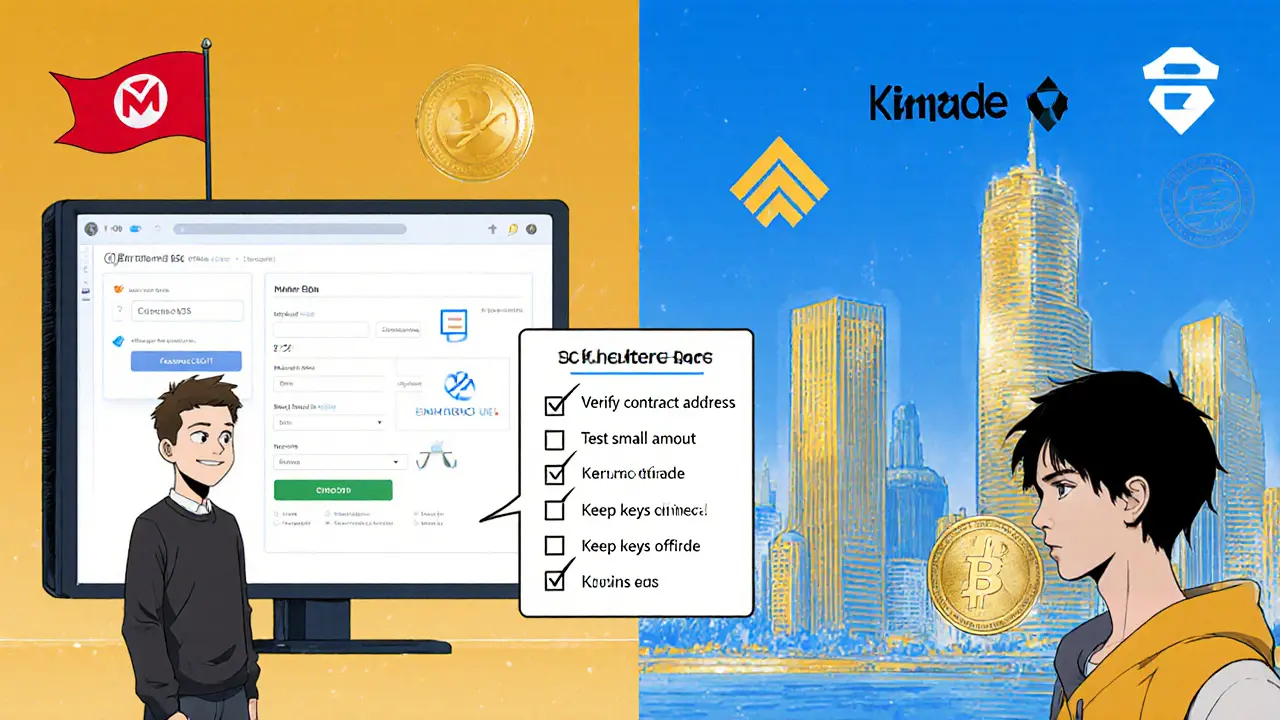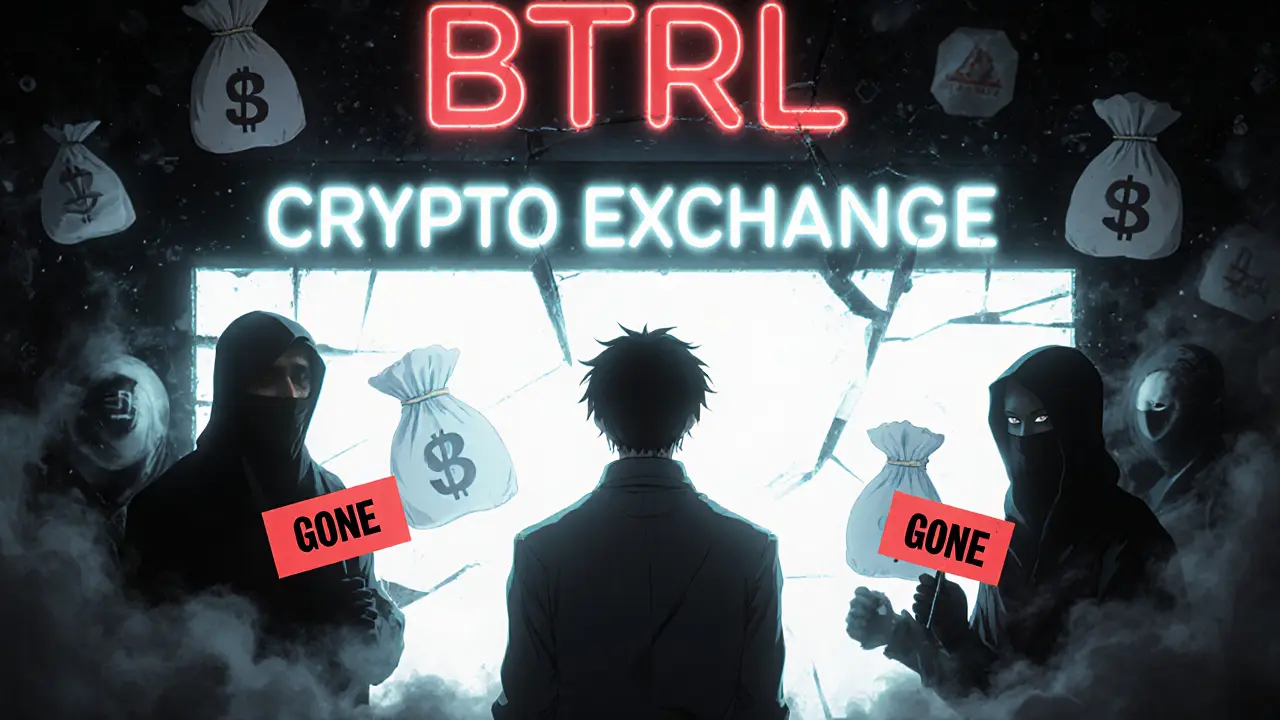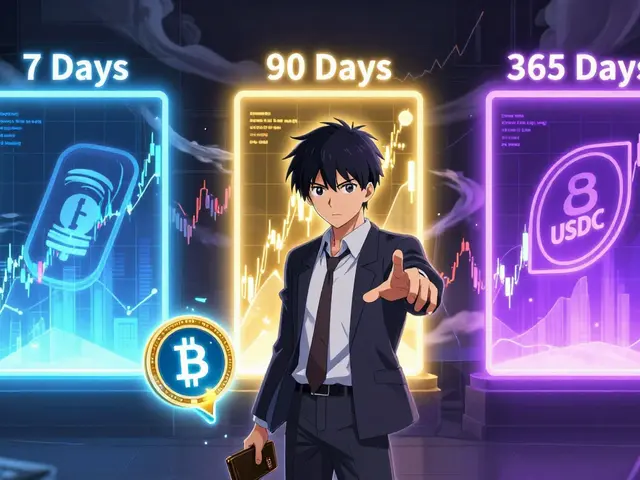Minter (BSC) Fee Calculator
Key Takeaways
- Minter (BSC) is a niche DEX on Binance Smart Chain that advertises easy token‑minting.
- Fees are low on paper (0.2% taker, 0.1% maker) but hidden costs can appear via gas on BSC.
- Security relies on community‑run smart‑contract audits; no formal regulatory licence.
- User experience is basic - good for developers, less friendly for beginners.
- Compare against established platforms like Coinbase or Binance US before committing large funds.
What Is Minter (BSC)?
Minter (BSC) is a decentralized exchange built on the Binance Smart Chain that focuses on token minting services. Launched in early 2024, the platform markets itself as a one‑click solution for creating BEP‑20 tokens and immediately listing them for trade.
The idea is simple: connect a wallet, fill a form with token name, symbol, supply, and the smart contract generates the token on‑chain. Because it runs on Binance Smart Chain, transactions are cheap (typically a few cents in gas) and fast (under a minute confirmation).
How to Access & Trade on Minter (BSC)
Getting started only requires a BSC‑compatible wallet such as MetaMask, Trust Wallet, or Binance Chain Wallet. After connecting, the dashboard shows three tabs: Mint, Trade, and Analytics.
- Connect your wallet: Click “Connect”, approve the request, and you’re ready.
- Mint a token: Fill the form, pay the gas fee (about $0.03 at today’s rates), and the token appears in your wallet.
- Trade: Use the built‑in swap interface to trade your new token against BNB, USDT, or other BEP‑20 assets.
The swap engine is a standard Decentralized Exchange router that aggregates liquidity from PancakeSwap, BakerySwap, and a few niche pools.
Fee Structure
Fees are presented in two layers: on‑chain gas and platform commission.
- Gas fees: BSC gas is volatile; during network spikes it can rise to $0.15 per transaction.
- Platform commission: Minter (BSC) charges 0.2% on taker orders and 0.1% on maker orders. There’s a 5% discount for holders of the native Minter Token (MNT), which can be earned by staking.
Overall, the fee model looks competitive compared with many Crypto Exchange Fees in the market, but the hidden gas cost can surprise newcomers.

Security & Audits
Security is the biggest question mark. The smart contracts were audited by two community groups: CertiK (public report, no formal certification) and Hacken (limited scope). Both reports flagged “upgradeable contract” patterns that could be exploited if the admin key is compromised.
Unlike regulated giants such as Coinbase or Kraken, Minter (BSC) does not hold any Regulatory Compliance licence in the United States or Europe. Users must perform their own due‑diligence.
User Experience
The UI is minimalist. For developers, the one‑click mint flow is a time‑saver. For casual traders, the lack of detailed order‑book depth, limited charting tools, and no fiat on‑ramps can be frustrating.
Customer support is limited to a Telegram group and an email address that typically replies within 48 hours. There is no live chat.
Comparison with Major Exchanges (2025)
| Feature | Minter (BSC) | Coinbase | Binance US | Kraken |
|---|---|---|---|---|
| Primary Chain | Binance Smart Chain | Multiple (incl. Ethereum, BSC) | Multiple (incl. BSC) | Multiple (incl. Ethereum) |
| Token Minting | Built‑in one‑click mint | None (external services only) | None (external services only) | None (external services only) |
| Trading Fees | 0.1% maker / 0.2% taker (+ gas) | 0%‑0.5% variable | 0%‑0.1% maker / 0.1%‑0.2% taker | 0%‑0.26% maker / 0%‑0.26% taker |
| Regulatory Licence | No formal licence | US & EU licensed | US licensed | US & EU licensed |
| Liquidity Depth (BNB/USDT) | Low‑medium (depends on pooled farms) | High (institutional pools) | Very high (global market‑maker) | High (liquid order books) |
| Audit Transparency | Community reports only | Formal third‑party audits published | Formal audits, regular updates | Formal audits, quarterly reports |
From the matrix it’s clear that Minter (BSC) excels only in token‑minting convenience. For pure trading, established exchanges provide deeper liquidity, stronger compliance, and proven security.

Red Flags & Due Diligence Checklist
Before you move more than a few hundred dollars onto Minter (BSC), run through this quick checklist:
- Verify the smart‑contract address on BscScan; check for proxy patterns.
- Read the latest community audit reports (CertiK, Hacken) and note any unresolved findings.
- Confirm the platform’s gas cost for minting at current BNB price; unexpected spikes can erode returns.
- Test with a small amount (e.g., $20) and monitor order execution and slippage.
- Ensure you keep private keys off‑line; the platform never holds custody.
Final Verdict
If you’re a developer looking for a fast, low‑cost way to issue a BEP‑20 token, Minter (BSC) does the job without extra steps. However, for everyday trading, storing value, or compliance‑driven investing, the platform falls short of the standards set by top 2025 exchanges.
Treat it as a specialized tool rather than a full‑service exchange. Pair it with a reputable DEX aggregator for better liquidity, and always keep an eye on gas fees.
Frequently Asked Questions
Is Minter (BSC) regulated?
No. Minter (BSC) operates as an open‑source DEX on Binance Smart Chain and does not hold any US or EU regulatory licence.
How much does it cost to mint a token?
The on‑chain gas fee typically ranges from $0.02 to $0.15, plus a flat platform fee of 0.1%‑0.2% on the minted token’s value.
Can I withdraw funds to a fiat bank account?
No. Minter (BSC) only supports crypto‑to‑crypto transfers. You’ll need to move assets to a fiat‑enabled exchange like Coinbase or Kraken to cash out.
Is the platform safe from hacks?
The code has undergone community audits, but there is no formal bug‑ bounty program. Users keep full custody of their keys, so the primary risk is smart‑contract bugs, not exchange hacks.
What wallets are compatible?
MetaMask, Trust Wallet, Binance Chain Wallet, and any wallet that can connect to BSC via Web3.








mike ballard
October 22, 2025 AT 02:27Yo, the Minter (BSC) DEX is basically a slick token‑minting factory on BSC – think of it as the fast‑track for BEP‑20 creation 🚀. The gas fees are peanuts most of the time, but you still gotta watch the BNB price swing. Their 0.2% taker / 0.1% maker spread is decent, especially with the MNT discount stacked on top. Liquidity is sourced from PancakeSwap and other niche pools, so slippage can bite on low‑volume pairs. Overall, it’s a handy dev tool, but not the go‑to for heavy‑weight traders.
Molly van der Schee
October 22, 2025 AT 16:21It’s nice to see a platform that lowers the barrier for creators, but I’d still advise a cautious approach. Test the minting flow with a tiny amount first, and keep an eye on the gas spikes. A measured start can prevent disappointment later.
john price
October 23, 2025 AT 06:14Don't trust that admin key, it's a honeypot waiting to be sprung.
Ty Hoffer Houston
October 23, 2025 AT 20:07Hey folks, just wanted to share that the UI feels pretty minimalistic – you won’t find fancy charts, but for devs it’s a breeze. The Telegram support is decent, usually ping back within a day. If you need deeper analytics, you’ll have to pair it with an external DEX aggregator. Also, make sure your wallet is set to BSC to avoid any cross‑chain hiccups.
Ryan Steck
October 24, 2025 AT 10:01Look, the whole thing could be a front for a back‑door if the upgradeable contract gets hijacked – keep your private keys offline and never hand over root access.
James Williams, III
October 24, 2025 AT 23:54From a technical standpoint, the gas model is typical BSC – you’ll see fees fluctuate between $0.02 and $0.15. The platform’s commission is transparent, but remember the hidden cost of routing through multiple pools. If you’re minting tokens for a launch, factor in those gas spikes during network congestion.
Amy Kember
October 25, 2025 AT 13:47Minting is straightforward-fill the form, pay gas, and you’ve got a token. Just verify the contract address on BscScan before you press confirm.
Paul Barnes
October 26, 2025 AT 02:41Sure, it’s convenient, but why trust a platform that only has community audits? The lack of a formal bug bounty feels like a blind spot.
John Lee
October 26, 2025 AT 16:34I’ve tried Minter for a token drop and the on‑chain experience was smooth, yet the actual market depth was shallow. Pairing it with a larger aggregator helped balance the slippage issue.
Jireh Edemeka
October 27, 2025 AT 06:27Oh great, another “decentralized” service that pretends to be safe while hiding the real risks behind fancy buzzwords.
Patrick Day
October 27, 2025 AT 20:21Honestly, the whole thing smells like a set‑up for a rug‑pull if the admin key ever gets compromised. Stay vigilant.
Jenna Em
October 28, 2025 AT 10:14The platform does what it says-minting and swapping-but don’t expect any fiat on‑ramps. If you need to cash out, you’ll still have to move to a bigger exchange.
Katheline Coleman
October 29, 2025 AT 00:07In summary, Minter (BSC) serves a niche purpose: rapid token issuance on a low‑cost chain. However, the absence of formal regulatory oversight and the reliance on community‑run audits suggest that only technically proficient users should engage with it. Maintaining custody of private keys remains essential, and conducting thorough due diligence is advised before allocating substantial capital.
Evan Holmes
October 29, 2025 AT 14:01Looks okay for token creators, not much else to say.
Isabelle Filion
October 30, 2025 AT 03:54Ah, the ever‑so‑innovative “one‑click mint” – because the blockchain needed another shortcut to bypass scrutiny. Brilliantly superficial.
Scott McCalman
October 30, 2025 AT 17:47🔥🚀 Minter is the future of token launches! Forget the big exchanges – this is where the real action happens. Even if the fees are tiny, the convenience is priceless. Get on it now! 😎
johnny garcia
October 31, 2025 AT 07:41From a compliance perspective, the platform does not hold any licensure, which is a considerable risk for institutional users. Nevertheless, the transparent fee schedule (0.1% maker, 0.2% taker) aligns with market standards, and the optional MNT discount can be financially advantageous. 🧐
Andrew Smith
October 31, 2025 AT 21:34Keep your head up! If you’re just testing the waters, start small and use the native MNT token for the fee discount – it’ll make the experience smoother.
Ryan Comers
November 1, 2025 AT 11:27🇺🇸💪 This is the kind of home‑grown crypto solution America needs – less regulation, more freedom. If the “globalists” try to shut it down, they’ll just see how resilient the community truly is! 🚩
Prerna Sahrawat
November 2, 2025 AT 01:21When one examines the architecture of Minter (BSC), one is immediately confronted with the paradoxical nature of its design: on the one hand, it offers a remarkably streamlined minting interface that democratizes token creation; on the other hand, it simultaneously inherits the inherent perils of proxy‑based upgradeability, a vector that seasoned auditors have long warned against. The community‑driven audit reports from CertiK and Hacken, while useful, lack the rigor of a formal third‑party security assessment, leaving a lingering question of robustness. Moreover, the reliance on BSC’s congested network can subject users to volatile gas fees, turning a seemingly low‑cost operation into an unexpectedly pricey endeavor during peak periods. The fee model-0.1% maker and 0.2% taker-appears competitive, yet the effective cost may be inflated when factoring in slippage from limited liquidity pools. For developers intent on rapid deployment, the platform’s minimalistic UI is an advantage, but traders seeking deep order books and advanced charting will find it wanting. The absence of a regulatory licence further compounds the risk profile, especially for participants constrained by compliance mandates. In practice, the platform functions best as a specialized tool rather than a comprehensive exchange solution. Users should therefore adopt a layered strategy: launch on Minter, then route liquidity through larger aggregators to mitigate depth concerns. Finally, custodial safety remains paramount; always retain sole control of private keys and avoid delegating authority to any third‑party. In sum, Minter (BSC) embodies both promise and peril, and its prudent utilization hinges on a nuanced appreciation of these dualities.
Joy Garcia
November 2, 2025 AT 15:14Well, if you like living on the edge, go ahead and mint there, but remember every shortcut has its own cost.
Erik Shear
November 3, 2025 AT 05:07Ok, test small and watch gas.
Anna Kammerer
November 3, 2025 AT 19:01Sure, the platform’s “one‑click” promise is cute, but if you’re serious about security, you’d better keep an eye on those audit reports and not just trust the hype.